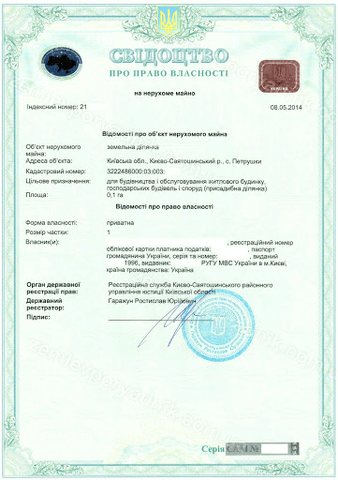How to divide property during divorce? Division of real estate or privatized property
Cost of services:
Reviews of our Clients
... our work on joint projects assured us of your high level of professionalism
Legal disputes in family relationships are quite common, especially when it comes to dividing shared assets after a separation. When a family breaks apart, each spouse hopes to receive a fair share of the property acquired during the marriage.
It's relatively straightforward to divide assets when both spouses agree, but when there's no agreement, the next logical step is to turn to the courts. This raises various questions, such as defining what qualifies as jointly acquired property and determining whether assets registered in one spouse's name alone are eligible for division. Are there certain assets that cannot be divided?
When dealing with the division of property during a divorce, it’s essential to have a knowledgeable lawyer who understands the complexities of family law. The division of real estate can be particularly challenging, as it often involves evaluating the value of the home, determining ownership rights, and negotiating a fair settlement. A skilled lawyer will guide you through the process, ensuring that the division of property is handled equitably and in accordance with the law. In cases where the division of real estate is disputed, family law provides the framework for resolving conflicts and reaching a fair resolution.
Our clients often encounter specific situations during the property division process in a divorce. We've gathered these scenarios in this article, addressing the most frequently asked questions about shared property.
If you're seeking answers tailored to your unique situation, your assets, and the best approach to their distribution, consult our experts. You'll receive an analysis and a personalized plan of action for a secure and smooth distribution of assets.
Does it matter whose name property rights are registered under during its division between spouses?
We frequently hear from our clients, "This is my personal property because it's registered in my name, so it shouldn't be subject to division between spouses." However, such a belief is mistaken and contradicts the norms of current legislation and judicial practice.
It makes no difference which spouse's name the property rights were registered under, whether it's movable or immovable if such registration occurred during the period of marital relations.
The crucial point is not the registration of property rights to one of the spouses but the registration of specific property during the marital relationship. When registering property rights to one of the spouses during the marriage, you must be aware that this property will be considered communal, with both spouses having equal rights to it.
You may also like: Dividing Real Estate in Divorce: How to Split the House and the Land It Stands On
How to divide a privatized land plot in divorce?
Let's delve into the privatization of a land plot during marriage and its implications for the division of marital property. Is such property eligible for division?
The outcome hinges on the timing of the land plot privatization.
If the privatization of the land plot occurred between February 8, 2011, and June 12, 2012, it is considered the joint common property of the spouses. However, if the privatization took place before February 8, 2011, or after June 12, 2012, it is deemed the personal private property of the spouse who availed themselves of the right to receive the land plot gratuitously from the land fund.
This situation arose due to extensive changes in the legislation regulating this issue and a temporary amendment to the Family Code during the period from January 11, 2011, to May 17, 2012.
In a particular case, a man filed a lawsuit seeking the division of the joint property of the spouses. The lawsuit included a land plot privatized by his wife during their marriage.
During the legal proceedings, the man attempted to demonstrate that he was the one handling all the organizational aspects of privatizing the land plot and that it was he who paid the necessary fees and charges.
However, when delivering its decision, the court rejected the division of the land plot, recognizing it as the personal private property of the wife, not subject to division between spouses. The court based its decision on the fact that the land plot was privatized after June 12, 2012.
Privatization of an apartment or house during marital relations and its impact on the division of marital property
The situation with the housing fund is entirely analogous to the scenario described above regarding the land fund. Legislative changes not only affected land relations but also addressed issues related to the privatization of the housing fund.
As a general rule, if one of the spouses privatizes state-owned housing during the period of marital relations, it becomes the personal private property of the spouse who exercised the right to privatize the housing fund. Consequently, it is not subject to division between them.
However, as mentioned earlier, legislation underwent changes, affecting not only matters concerning the privatization of the land fund but also those related to the privatization of the housing fund.
If property is acquired by one of the spouses through the privatization of state housing during the period from February 8, 2011, to June 12, 2012, inclusive, then such property is considered the joint common ownership of the spouses. It is subject to division between them in equal shares, as during this period, the Law No. 2913-VI dated January 11, 2011, was in effect.
Are funds from a bank deposit agreement, corporate rights, and unfinished construction projects subject to division?
When bringing a case to court for the division of marital property, parties typically seek the court's involvement in dividing jointly acquired assets, encompassing both movable (often vehicles) and immovable property (such as apartments, parking spaces, houses, and garages). Usually, these claims mark the conclusion of the parties' demands. However, it is not widely known that even deposits in bank accounts opened in one spouse's name are subject to division between spouses.
In addressing the division of funds in deposit accounts, the court primarily requires supporting evidence for such claims. During the preparatory stage, parties have the right to petition for the collection of evidence, seeking to obtain documentary confirmation from the banking institution regarding the existence of such deposits, including the exact date of opening and the amount involved.
After obtaining documentary evidence of the existence of a bank deposit and confirming the opening of a bank deposit account during the period of marriage, the court renders a decision recognizing the funds placed in the deposit as joint property. In such instances, the court may order one spouse to reimburse the other 50% of the deposit amount.
In essence, if you have a deposit created during the marriage, upon divorce, you can anticipate its division into equal shares between the spouses.
Are corporate rights subject to division in a divorce?
We acknowledge that when capital is injected into the charter capital of an LLC, the legal entity itself becomes the proprietor of the assets. However, we are considering a scenario where the funds contributed to the charter capital constitute joint property of the spouses. In such a case, even if the second spouse is not a participant in the LLC, they have the right to a share of the income derived from the company's activities. If the second spouse was unaware of or disagreed with such a contribution, they possess a legal right to receive compensation for the value of their share.
Therefore, when transferring joint property to the charter capital of the company, the legal owner of said property becomes the company. The spouses acquire the corresponding property right, which is exercised by one of the spouses (the founder) through participation in the management of the company. Simultaneously, the other spouse gains the right to demand payment of specific amounts in the event of property division between spouses. In such a scenario, the court issues a decision to recover half of the contribution to the charter capital of the company in favor of one party from the other.
Are unfinished construction projects subject to division in a divorce?
In real-life scenarios, it's common for spouses to find themselves unable to complete a joint building project and opt to end their relationship. This leads to the question of whether ownership rights to such an incomplete construction project can be divided, considering that the house hasn't been finished, and property rights haven't been registered.
Under current legislation, ownership rights to newly created property can only be registered once construction is complete. Mere completion of the construction is typically not enough; the property must also be put into operation. Consequently, property rights can only be registered after the project is operational.
Hence, a real estate property only obtains the status of a residential house after it has been put into operation and officially registered. However, up to the present moment, an unfinished construction project is essentially a collection of building materials, giving rise to civil rights and responsibilities.
To assess the degree of completion of the unfinished construction project, a construction-technical expertise is required. One of the parties typically files a motion for its appointment. Depending on the findings of this expertise, the court may make one of the following decisions:
- Division of building materials (if construction is in its initial stages);
- Division of shares in the real estate property (if the house is nearly completed).
Hence, unfinished construction projects are acknowledged as the shared joint property of spouses, entailing equal rights for both parties concerning such assets. Consequently, they are eligible for division between spouses in equal portions, whether in the form of construction materials (in the early stages of construction) or as shares in the incomplete structure (if the project is nearly finished).
The article delineates the fundamental scenarios we frequently encounter in practice. Nevertheless, each situation may possess its own nuances. Our role is to analyze your specific circumstances and propose a straightforward and secure individualized solution to address the issue.
Our legal team offers you:
- Analysis of your situation and existing assets for equitable distribution;
- Evaluation of risks and client's prospects;
- Formulation of the legal stance for the distribution of existing property;
- Guidance throughout the procedure of dividing marital property.
Family law encompasses numerous intricacies that are essential to grasp to protect your interests. If you wish to secure what rightfully belongs to you and ensure you receive everything entitled to you by law, feel free to contact us. Our lawyers will gladly assist you.
The cost of legal support during the equitable distribution process can be found here.
Our clients









